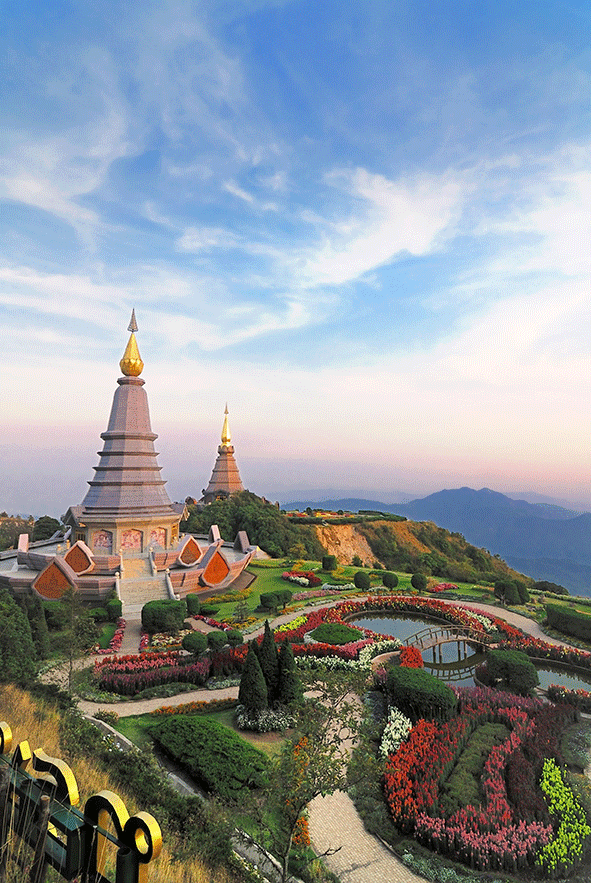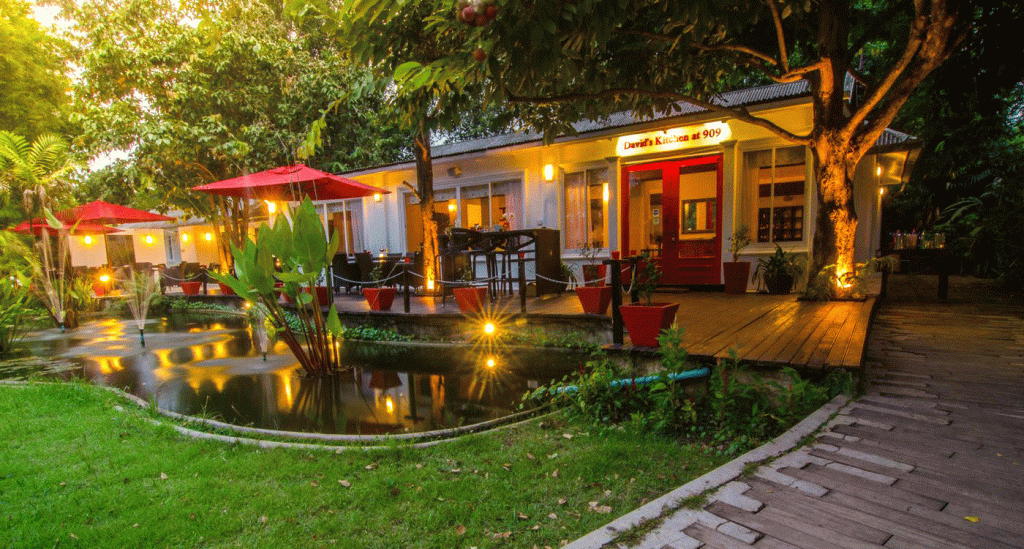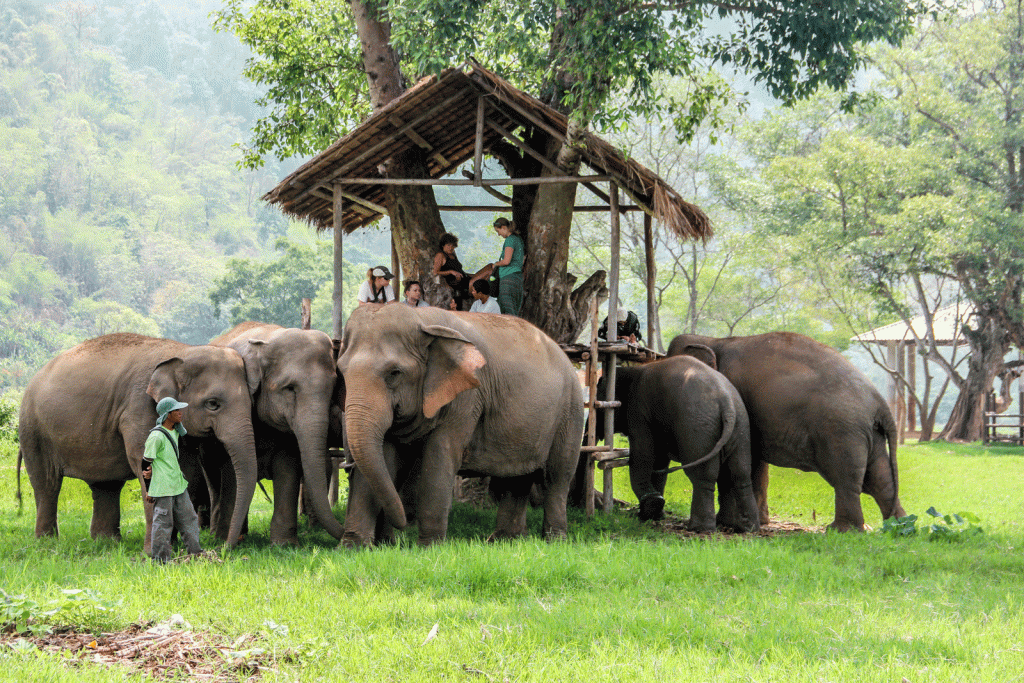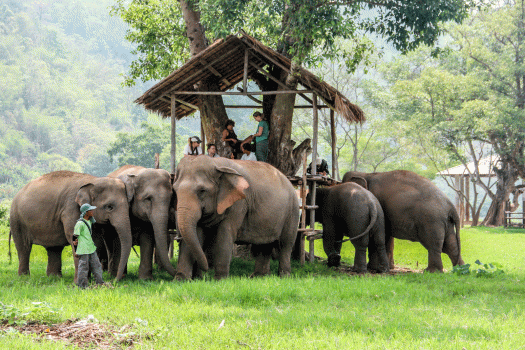It was a brief but promising visit to Chiang Mai in Thailand. Suzanne McNeill promises to return to explore more

Thailand in two days? This ancient kingdom demands far greater attention, but on this, our first trip, two days is all we have and we are determined to embrace as much as we can of the country’s cuisine, wildlife, temples and nightlife. As it turns out, our destination, the calm and laidback city of Chiang Mai, is a terrific introduction to Thailand.
We are booked into the X2 Riverside Resort, a tranquil boutique hotel that sits on the bank of the Mae Ping River, minutes from the city centre. The hotel has an understated elegance. Its red-brick exterior is almost austere, but inside paths wind through green lawns and lush plantings of ferns and palms canopied by mature tamarind trees. We are welcomed with grace and warmth, garlanded with jasmine and taken to rooms that blend an understated, modern elegance with elements of traditional northern Thai Lanna design.
Pleasing the Palate
Our first stop is Woo Café, an art gallery and lifestyle shop that also serves mouth-watering Thai dishes. We select seafood soup, rich with coconut milk and lemongrass, before browsing the displays. Back at the hotel, we are booked into the gorgeous spa for an aromatherapy massage. Alarmed by stories of painful deep-tissue massage, I opt for ‘medium pressure’ and the masseur moderates the muscle kneading and rolling with long, sweeping strokes. Ninety minutes later, I am in a lavender-oil trance and promptly fall asleep back in the room.
Evening dinner is booked at David’s Kitchen. David, a Brit who moved to Thailand 18 years ago, introduces himself and we discover he once worked in my hometown of Edinburgh. The restaurant, which he runs with his wife, specialises in French cuisine (fused, of course, with Thai flavours). For a moment we are anxious – one of our party is French – but he pronounces that his Boeuf bourguignon with Paris mash is delicious, and we relax.
Through the Winding Lanes
Now it’s time to investigate the old town. The city was founded by King Mangrai in the 13th century as the capital of the Lanna Kingdom. It was surrounded by a moat and a defensive wall as fortification against the neighbouring Taungoo people as well as the Mongol armies. The Lanna Kingdom lasted for 300 years, but in 1556, was occupied by the Taungoo, and went into a 200-year period of decline. The city was temporarily abandoned, but cultural and economic prosperity returned in the 19th century. The ancient walls and gates still remain, as does the moat, and the town is dotted with temples that have stood for 500 years or more.
We wander through the spotless, labyrinthine streets. Western-style organic coffee shops abound, but we stop for a Thai omelette and stir-fried greens at a simple outdoor restaurant before entering, quite at random, the Wat Chiang Man Temple, the first temple built by King Mangrai in the city.

With the Gentle Giants
We are up early in the morning. We are booked into a half-day visit to the Kanta Elephant Sanctuary, and are picked up at 7.00 a.m. by our tour leader in a minivan packed with holiday-makers and backpackers from Italy, Germany and the United States. It’s an hour-long drive that takes us well beyond the urban outskirts into the countryside. The Sanctuary describes itself as an ethical and sustainable eco-tourism project offering a home for elephants that have been rescued from tourist resorts or the logging industry. We all change into a practical cotton uniform (the reason becomes apparent when we start feeding the elephants – they can drool on you!), and after an introductory talk by the group leader, we meet the animals. These are females and babies – the male, with his impressive tusks, is homed on the other side of the pasture.
There are three stages to the morning. The first eases the group into contact with the elephants by feeding them sugarcane and bananas. We are all intimidated at first, especially when two or more of the elephants converge on us at the same time, eager to collect their share of the rations with their extraordinary, mobile trunks. But they are very gentle and everyone soon relaxes. We then all join in to mix with our bare hands a ‘herbal’ nutritious mix of banana, tamarind, dry pellets and green leaves, which we form into balls and pop into the elephants’ mouths, bringing us even closer to these extraordinary beasts. Finally, the elephants are encouraged (they don’t need much persuading!) to walk into a small river, and we follow them in to scrub them and pour water over their hides. The baby rolls in the shallows like a puppy, almost squirming with pleasure. It’s a delightful and affirmative experience, and we return to the hotel on a high.

A Place of Worship
Given our morning’s activities we have arrived at the most appropriate place, for the Chedi, the oldest and most sacred structure in the complex (it is also called the Stupa or Pagoda), is known as the Elephant Chedi for the 15 carved elephants that appear to emerge from the structure’s stone base. The large Viharn, or assembly hall, is beautiful. The white exterior is embellished with decoration in gold and red, whilst the interior is adorned with wall paintings and a golden figure of the Buddha holding an alms bowl.
We take a tuk tuk back to the hotel, and it’s time for dinner, this time at X2’s Oxygen Restaurant. It’s a gorgeous airy space, lined with glass walls that look out to the grounds and which serves high-end, fine cuisine. We eat Thai-inspired crab and salmon dishes, interspersed with complimentary amuse-bouche delicacies.
The day concludes with a visit to one of Chiang Mai’s celebrated cabaret shows, and we depart the next morning after a breakfast eaten al fresco, gazing across the lawns to the river. We have barely scratched the surface of this enchanting country, but are delighted nonetheless with all we have seen and done.
